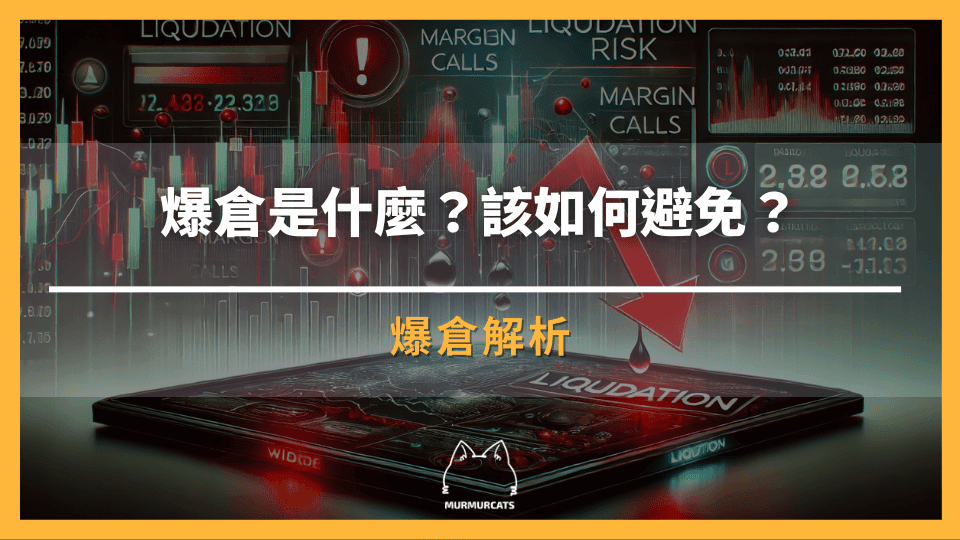
From liquidation to turnaround! 16 trading rules to completely say goodbye to being a noob
1. Bull and Bear Strategy: Grab altcoins in a bull market and hold tight to BTC in a bear market; this is the golden rule for crossing cycles!
2. Volume Alert: A sudden spike in volume at the bottom is the market's 'start signal'; keep a close eye and don't blink!
3. Moving Average Sniping: When a rising trend coin pulls back to a key moving average, take decisive action; this is a once-in-a-lifetime opportunity!
4. Trading Restraint: Don't be a 'trading maniac'! Catching a few major trends in a year is enough; greed leads to losses!
5. Position Red Line: Never go all-in! Keep enough ammunition to counterattack when the market suddenly changes.
6. Stop Loss Decision: Don’t average down on junk coins! Cutting losses in time is stop loss, and it’s also a lifesaver for preserving capital.
7. Stay Informed: Listen to rumors but don't follow the crowd blindly; you could find yourself buried in a pit.
8. Focus on Your Lane: Don’t touch unfamiliar currencies! Deeply cultivate familiar areas to accurately grasp profits.
9. Emotional Management: Stay calm when the market is crazy, remain composed during market panic, and don’t let emotions control your wallet!
10. The Truth About Altcoins: When altcoins rise a lot, they must fall, but when they fall a lot, they may not necessarily rise; the ability to select coins is more important than luck!
11. Reverse Thinking: When everyone is rushing in, danger is quietly approaching; don't be the last fool to take the bait!
12. Wisdom of Cash Holding: Learn to wait with cash! When market signals are unclear, cash is the safest asset.
13. Avoid Hotspots: Don’t chase fleeting hotspots! Blindly following the crowd will lead to your own entrapment!
14. System is King: Build your exclusive trading system and strictly implement it; this is the core code for stable profitability!
15. Mindset Victory: Investment is a marathon; maintaining a stable mindset without impatience is key to being the winner at the end!
16. Capital Bottom Line: Don’t use life-saving money to trade! Invest with spare money, stabilize your mindset, and your win rate will naturally soar!

Profit comes from persisting in the trend trades that others abandon, seizing opportunities that others do not want, and doing what others dare not do. Investment only has abandonment due to insufficient persistence, and there is no such thing as complete failure. Trading is the same; initially optimistic about a direction, but as market fluctuations occur, one changes their original direction. Originally bearish, one might exit and go long due to a slight market rise, ultimately delaying the downtrend and incurring losses against the trend. Such examples abound in trading; any success requires persistence.
Becoming a highly defensive trader is a key transformation for novice traders on their trading journey. Many beginners may initially be misled by a short-sighted mentality, hoping to earn profits quickly, even trading with a 'get rich overnight' mentality. However, a more practical and feasible mentality should be: to maximize the protection of one's funds. These two mentalities cannot coexist; if you only focus on quick profits, it is likely that your funds will be lost even faster.
A rule in the sports arena also applies to trading: offense is the best defense. In this context, it means trading only under favorable conditions while protecting your funds and staying away from the market at other times. Newcomers may be lucky enough to achieve success in their first few trades, but luck cannot last; you should be wary of the 'newbie effect' trap.
Imagine if you were holding a gun; unless you are sure you can hit your target accurately, you wouldn't waste a bullet. The same principle applies to trading: preserve your capital strength and only strike when a truly favorable opportunity arises. In trading, maximizing the protection of your funds is the key to success. As long as you can effectively control risk, even when faced with strong entry signals but ultimately failing, the impact on your funds can still be kept within a reasonable range.
Frequently checking charts and constantly monitoring trades can often have a negative impact on trading. In life, too much interference usually does not yield good results. If you continually try to over-control trading, the outcome may backfire, causing you more distress.
Have you ever unconsciously increased your position or exited a trade early because of excessive focus on charts? In hindsight, do you feel you were too impulsive at that time? Such unplanned actions are often one of the reasons many people incur losses.
The simplest way is to set up a trading plan and then forget about it. This is a principle I often emphasize to newcomers, and one of the most valuable experiences I've gained: the less interference you have with your operations in trading, the better. Simply following your trading plan and letting trades proceed as planned is true trading wisdom.
The result of the last trade should not affect the next trade. The outcome of the previous trade should not influence the next one. This is an extremely important principle, but many people often forget it. They can easily be influenced by the results of the last trade. However, it should be understood that every trade is unique.
The results are randomly distributed. Suppose you made 100 trades; the gains and losses might be quite similar. However, their distribution cannot be so uniform. You might have 5 or 10 consecutive losses, and if these losses affect your mindset, the subsequent profit opportunities may also be hindered by your emotional state.
It is also important to note that after experiencing profitable trades, excessive confidence can have a negative impact on trades, just like the fear after losing trades. Excessive confidence can lead to taking on too much risk, and in the long run, its negative effects can be quite frightening. Therefore, maintaining calm in trading and not being swayed by short-term trading results is key to maintaining a stable mindset and achieving long-term success.
Simplify trading, and you will gain more.
In trading, moderation is key. Many common mistakes traders make include overdoing things. They overanalyze the market, overinterpret market conditions, overthink, and oversize their orders. Overall, they do many unnecessary things. As a trader, learning to be appropriately 'lazy' is equally important.
First, it is important to clarify that the favorable signals in the market over a period of time are limited, even rare. Most of what you see and hear may just be 'market noise' that is of no benefit to you. Learn to filter these signals and then select the truly beneficial 'quality signals'; this is a routine step in finding opportunities.
Secondly, I recommend that you learn the mindset of hedge fund traders for trading. They hold millions or even billions of dollars but trade with very strict principles, like picking diamonds from sand, only choosing the highest return opportunities. For signals that are 'possible' or 'seem like' something, I advise you to stay away. In my 20-plus years of trading experience, the best trades have always been the most obvious and intuitive.
Have a clear exit plan before entering.
In trading, no one tells you what you should do. You must make your own rules, which means you must take responsibility for your own actions. Many people lack this self-control, often leading to a loss of trading direction.
Before trading, one of the most important tasks is to determine the exit plan. I spent several years realizing that: exiting is more important than entering. Observations show that many people's exits are capricious, resulting in either minimal profits or substantial losses. Establishing a strict take-profit and stop-loss plan is the best approach. Such a plan can provide you with clear guidance, allowing you to remain calm and execute the plan regardless of profit or loss. This disciplined exit plan helps ensure that you maintain a clear mind in trading and reduce the influence of impulses and emotions on decision-making.
Avoid worthless trading.
In the world of trading, worthless trading refers to trades where the risks and profits are disproportionate, usually occurring when traders are blindly and frequently trading. Such trades often lead to losses greater than profits, affecting the trader's mindset and even trapping them in a vicious cycle of losses.
Specifically, this is reflected in traders facing a volatile market, seeing so-called 'opportunities' and rushing in without considering the profits and risks. These blind traders often have a gambling mentality, believing that even a tiny profit is a gain. They ignore the big risks for small profits and even think that any market condition is an opportunity not to be missed, subjectively magnifying small opportunities and impulsively trading. This attitude shows contempt and disrespect for the market and makes it difficult to achieve good results.
For professional traders, they usually create a trading plan in advance, set stop losses, etc., to ensure that even if they incur losses, it does not have a significant impact. However, the losses caused by worthless trading are different because such traders have a shallow understanding of the market and make trading decisions somewhat casually, lacking deep thought. These avoidable losses are more harmful than beneficial to a trader's growth.
High Discipline
High discipline plays a crucial role in financial market trading. It refers to traders following a set of clear rules and principles during trading to ensure effective risk management, achieve investment goals, and avoid negative outcomes caused by emotions and arbitrary decisions. The level of discipline directly relates to trading success and is considered one of the key factors for successful trading.
I insist on emphasizing that trading decisions should not be influenced by emotions. Every day I only spend half an hour reviewing charts, deliberately avoiding getting caught up in excessive observation.
Market volatility. I advise traders to strictly adhere to their trading plans.
Avoid overanalyzing the market, as disciplined execution is the cornerstone of stable profitability. By following the predetermined plan, I can maintain calm and avoid emotional decision-making, thus improving trading efficiency and stability.
Most of the time, you should step away from the trading desk. A wise strategy is to maintain distance from the market. Overtrading is often a shortcut to losing funds, and remembering this is crucial.
I am (Brother Jun Crypto), with 7 years of deep involvement in the coin circle, demonstrating true skill in short-term games, and having structured mid-to-long-term layouts. I precisely capture the best trading moments and empower your investment decisions with firsthand news. Choose the right direction, find the right rhythm, and here you have the professional perspective you need.$ETH